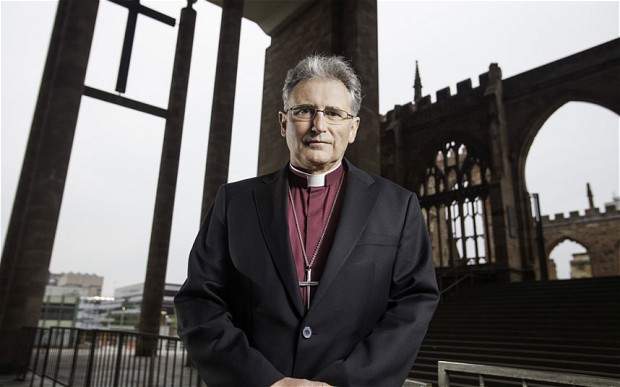19 Oct. The qualities needed in church leaders
"What I say is true: anyone wanting to become an elder [wanting to oversee the church] desires a good work [job]."
"An elder [Greek 'episkopos' - an overseer] must not give people a reason to criticise him, and he must have only one wife."
"He must be self-controlled, wise, respected by others, ready to welcome guests and able to teach. He must not drink too much wine or like to fight, but rather be gentle and peaceful, not loving money."
"He must be a good family leader, having children who co-operate with full respect. (If someone does not know how to lead the family, how can that person take care of God's church?)"
"But an elder must not be a new believer, or he might be too proud of himself and be judged guilty just as the devil was."
"An elder must also have the respect of people who are not in the church so he will not be criticised by others and caught in the devils' trap."
"In the same way deacons [Greek 'diakonos' - a helper or servant] must be respected by others, not saying things they do not mean. They must not drink too much wine or try to get rich by cheating others."
"With a clear conscience they must follow the secret of the faith that God made known to us. Test them first. Then let them serve as deacons if you find nothing wrong in them."
"In the same way, women [who have roles within the church] must be respected by others. They must not speak evil of others. They must be self-controlled and trustworthy in everything."
"Deacons must have only one wife and be good leaders of their children and their own families. Those who serve well as deacons are making an honourable place for themselves, and they will be very bold in their faith in Christ Jesus."
(1 Timothy 3:1-13)

In his First Letter to Timothy, Paul advises his young fellow-worker on the qualities required in church leaders.
Paul says that the most important quality in all Christian leaders is their personal integrity – they must be above reproach and totally reliable. There is no room for irresponsibility as leaders must be sober and self-controlled. As well as being able teachers of God’s word, they should be well organised and hospitable.
They should welcome strangers into their homes and be gentle and peaceful. They must be mature in their faith and be well respected by non-Christians. They should also have a steady marriage and bring their own children up to have a proper respect for their parents.
Church helpers must also have a good character. They mustn’t drink too heavily or be greedy for money. They should be able to manage their own children and family well, and should speak boldly about their faith in Jesus Christ.
Paul adds that women with roles within the church must also be totally trustworthy, mustn't spread malicious gossip, and must be respected by others.
Paul was writing in a society which was very hierarchical and male-dominated. In Roman society, everyone was aware of their allotted status, from senators and patricians down to plebeians and slaves. It was also a male-dominated society where women were not expected to hold positions of authority (see 1 Timothy 2:11-12).
So Paul, not surprisingly, suggests a similar male-dominated hierarchy in the early church - a pattern which may have been culturally appropriate in his own day, but may not be acceptable in today's far less hierarchical and more gender equality based modern society. Using Paul's words on church leadership to support a male-dominated hierarchy in today's church is no more appropriate than using his words to Christian slaves to support modern slavery.
In his advice to Timothy, Paul divides church leaders into two categories - elders [Greek 'episkopos' - an overseer] and deacons [Greek 'diakonos' - a helper or servant]. He is referring to leaders who speak, teach, heal and prophesy (see 1 Corinthians 12:7-11) and to the helpers (or 'deacons') who were appointed to supervise the help given to the poor (see Acts 6:1-6).
Paul's advocacy of a hierarchical structure of church administration has affected not only the way in which churches are organised today (compare the strongly hierarchical leadership structure of the historical Anglican and Catholic churches with the more shared leadership of many modern churches), but it has also affected the way Paul's words have been translated down the centuries.
So while the King James Authorised Version of 1611, published to support and reflect the hierarchical tradition of the Church of England translated 'episkopos' as ‘bishop’ rather than ‘overseer’ (and substituted the word ‘church’ where the Greek ‘ekklesia’ means an ‘assembly’ or ‘congregation’), the New Century Version of 2010 (used in The Bible Journey) translates 'episkopos' as 'elder'.
The photo shows the Rt Rev Christopher Cocksworth, the Anglican Bishop of Coventry - a church leader or 'overseer' in the Church of England. You can read more about church leaders @ https://www.thebiblejourney.org/…/worship-among-the-believ…/
